Marketers understand the importance of automation, but many are unsure how to develop a strategy. Let’s break down the creation of a successful marketing automation strategy into three groups.
Firstly, automation is sent to potential customers pre-conversion to increase awareness of your product or service or persuade them to follow you. Secondly, automation is sent to leads to persuade them to complete their conversion to a user. Finally, automation is sent post-conversion to check in on user experience, take feedback, offer support, or encourage repeat buying.
Want to learn how to implement proven marketing automation strategies to hack your growth in 2022? Let’s dive in.
Table of contents
- 11 Trending Marketing Automation Strategies
- 1. Automate customer journey to get leads
- 2. Automate a demo in exchange for emails
- 3. Set up social media automation to save time
- 4. Use lead scoring to boost conversion rate
- 5. Automate lead segmentation to nurture them
- 6. Use dynamic content for personalized experiences
- 7. Set up a drip campaign to nurture leads
- 8. Automate abandoned carts to recover revenue
- 9. Set up trigger emails to automate feedback
- 10. Use chatbots for tailored customer service
- 11. Automate rewarding loyal customers
- Wrap up
11 Trending Marketing Automation Strategies
The following marketing automation strategies are meant to get you thinking about which ones you should implement in your customer journey today.
1. Automate customer journey to get leads
Imagine delivering the right message to just the right type of consumer, and you've only scratched the surface of how automation can help you revive your marketing efforts.
By automating your customer journey, you can send a series of emails to specific target markets based on a variety of trigger points, such as website activity or communication with your customer support team.
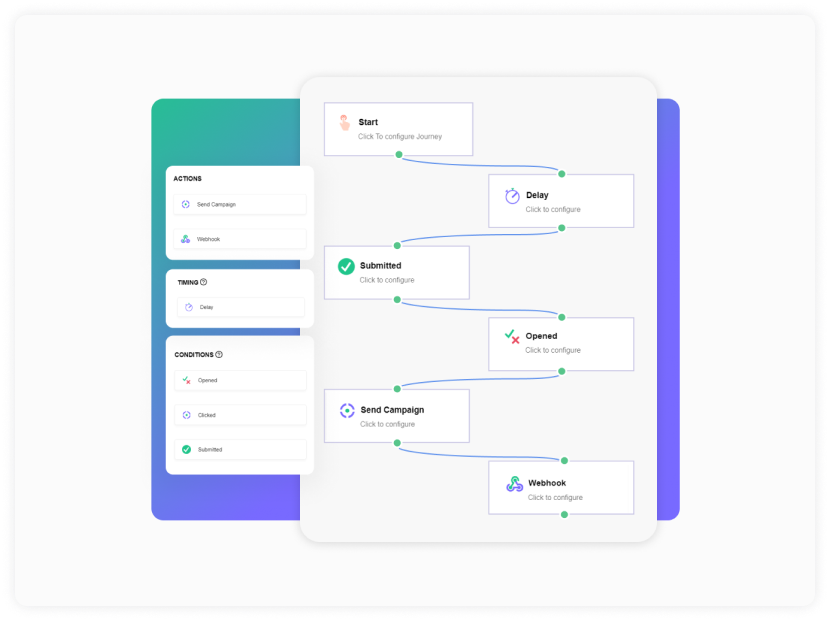
With Mailmodo’s custom journey builder, you can:
👉 Apply conditional logic within the email journey
👉 Integrate and set triggers from external applications
👉 Add time delays and schedule send times
Related guide: How to Build Customer Journey Maps for Your Buyer Personas
2. Automate a demo in exchange for emails
Potential consumers want to discover more about you early on in the decision-making process. You, too, are curious about them. You'll most likely want to collect their email address so you can continue the discussion after they leave your blog or landing page.
Keap has a great idea: In return for an email address, it offers potential leads a teaser of their online demo.
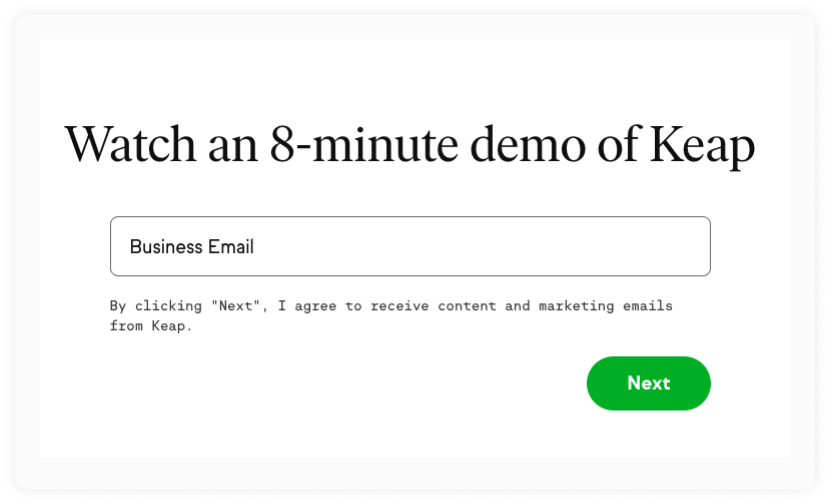
The flexibility to see a demo on their own time, at their own speed, is a huge benefit for a lead. Keap, on the other hand, automates follow-up emails to the demo to keep the lead engaged.
3. Set up social media automation to save time
Social media automation tools help you identify groups of individuals talking about a specific topic linked to your business, such as a highly wanted product or a service you provide that people may not be aware of.
You may save time by creating a message that urges everyone discussing a relevant topic to take action like Freewallet did:
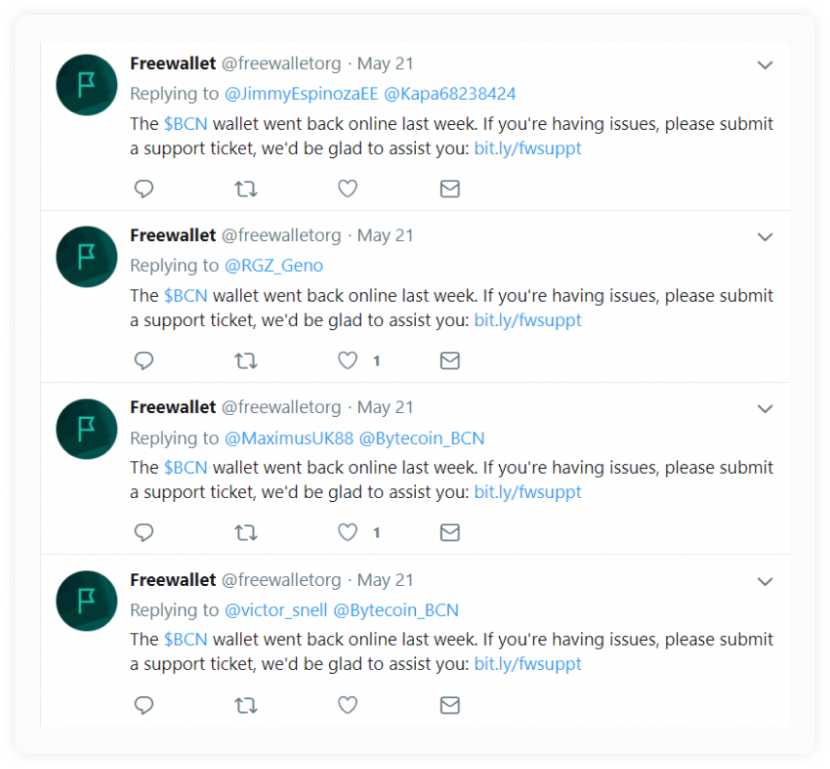
In this situation, Freewallet gathered the Twitter accounts of everyone who complained about a function being unavailable. When the function was restored, they employed automation to notify users of its availability.
4. Use lead scoring to boost conversion rate
Lead scoring can be used to pre-qualify leads before sending them to your sales team by assigning a score to each lead based on their behavior.
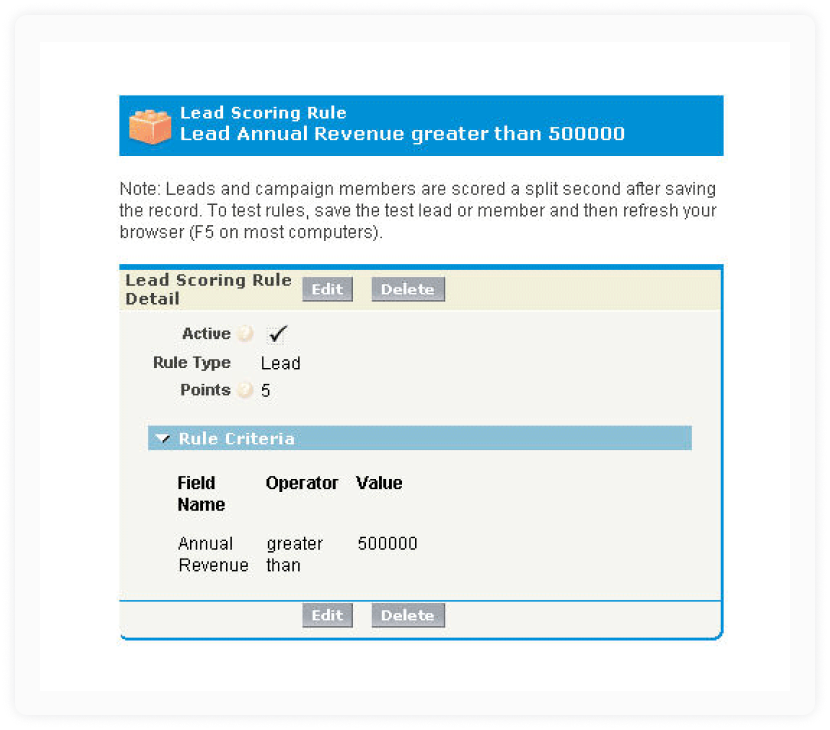
Salesforce Labs has designed a free lead scoring software that uses lead criteria you establish to score leads (up to 200 rules). It helps you make more informed decisions about which leads are the most promising based on a range of variables.
Related guide: Your One-Stop Guide to Conversion Rate Optimization in 2022
5. Automate lead segmentation to nurture them
Segmenting your customers helps you increase sales by offering them what they already want. You can create lists based on common factors like average order value, engagement level, location, profession, age, and profession by segmenting your contacts.

If you use Mailmodo to create a dynamic segment, any users you add after the segment is created will be automatically added if they meet all of the conditions, like email campaign activity, clicks, page views, scrolls, etc.
Related guide: 12 Actionable Email Segmentation Strategies to Send Highly Targeted Campaigns
6. Use dynamic content for personalized experiences
Here’s how HubSpot defined dynamic content:
“Also referred to as ‘dynamic’ or ‘adaptive’ content, smart content is a term for the aspects of a website, ad, or email body that change based on the interests or past behavior of the viewer. It creates an experience that’s customized specifically for the visitor or reader at that moment.”
This is beneficial in two ways. To begin, giving relevant offers reduces bounce rates and boosts conversions. Second, it enables you to build unique experiences for your customers.
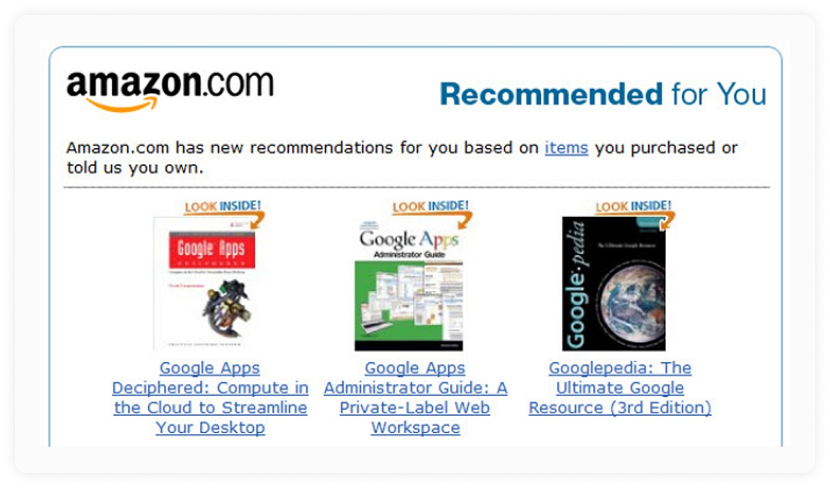
Consider the last time you accessed your Amazon account for an example. Did you notice a tab that provided you with a number of product recommendations based on your search history or purchasing patterns? Amazon even recommends dynamic content based on millions of users' browsing habits.
7. Set up a drip campaign to nurture leads
When a subscriber expresses an interest in purchasing your product or service, you can immediately enroll them in a drip campaign to gently encourage them to complete the transaction.
To nurture your leads and increase client loyalty, you may use the following sorts of automated email campaigns:
For efficient onboarding, create an automated welcome email series.
Follow-up emails are sent to new leads at predefined intervals to keep them informed.
Emails celebrating important occasions in one's life
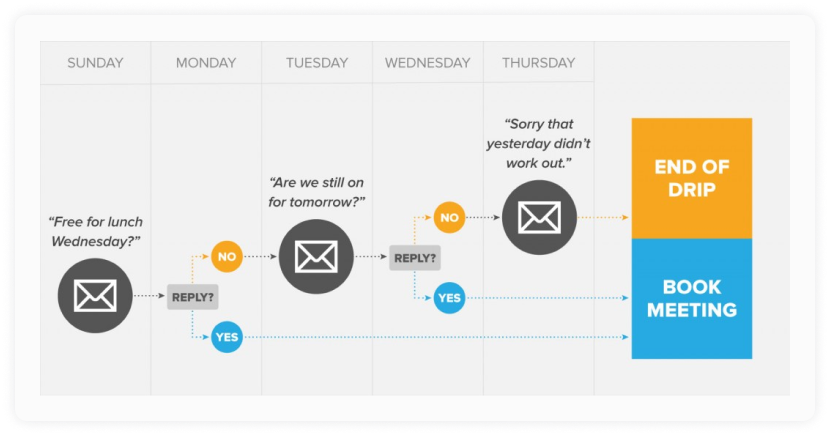
KANA Software increased their average CTR by 3X using an automated drip campaign as compared to their normal blasted emails.
Related guide: A Guide to Email Drip Campaign and How to Get Started With it
8. Automate abandoned carts to recover revenue
Cart abandonment, like the ability to retrieve it, is a feature of the e-commerce life cycle.
You can use Mailmodo to send an automatic 3-day email journey to improve cart recovery by generating FOMO and giving incentives to check out from the cart. It begins four hours after a consumer abandons their cart. Many marketers propose a 4-hour wait time as the optimum delay period. Book a demo with us to understand what goes into creating a cart recovery journey.
9. Set up trigger emails to automate feedback
Gathering and acting on client feedback is critical to your company's success. Manually collecting reviews, on the other hand, can be a time-consuming task. Instead, create trigger emails that are sent to users a few days after the product is delivered, asking for feedback. You may also collect comments and reviews for your items via website push notifications, in-app prompts or NPS surveys.
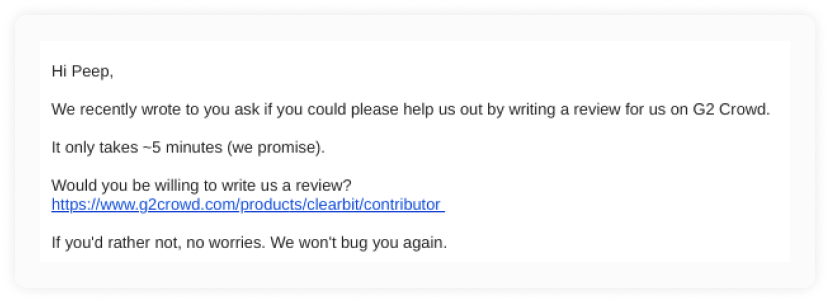
Clearbit handled one such request by automating a follow-up with consumers who gave favorable feedback in a customer survey. When no review was left following the initial request, they also automated a second and third email.
Source: CXL
10. Use chatbots for tailored customer service
Customer service is a focus point for most eCommerce firms, and it necessitates the hiring of staff to attend to your consumers 24 hours a day, seven days a week. This corresponds to a significant amount of revenue for any company, which can be optimized by incorporating chatbots into your customer care front line.
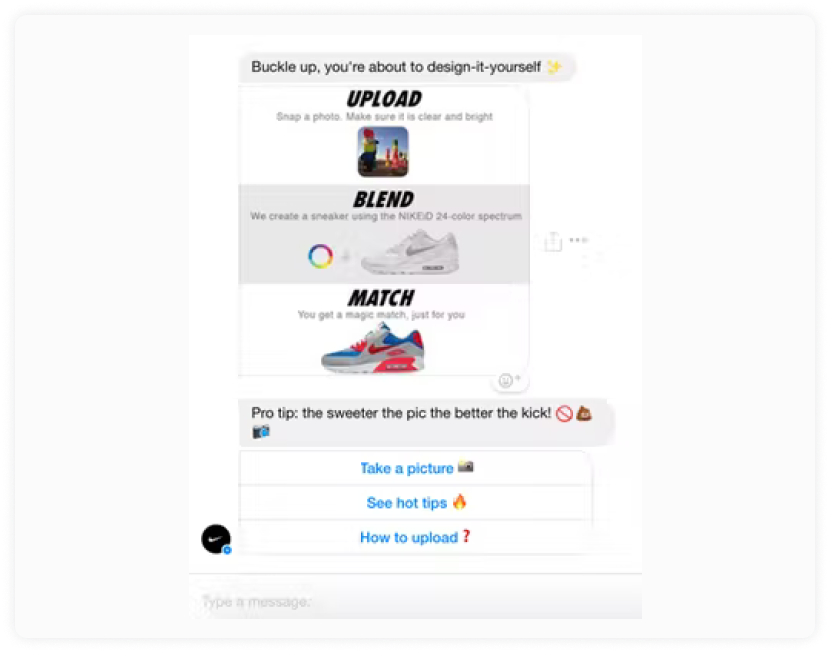
The Nike StyleBot, which helps consumers style their shoes and explore previously submitted designs for inspiration, is one popular and extremely successful example. Shoppers can use Nike StyleBot on Facebook Messenger to mix and match their designs and share them with their friends, making the entire experience more enjoyable.
11. Automate rewarding loyal customers
Use an automation program to automatically reward first-time consumers with a special discount or offer through email, converting them into repeat customers. Giving consumers a coupon or discount code that they can use on their next purchase is a great approach to entice them to return.
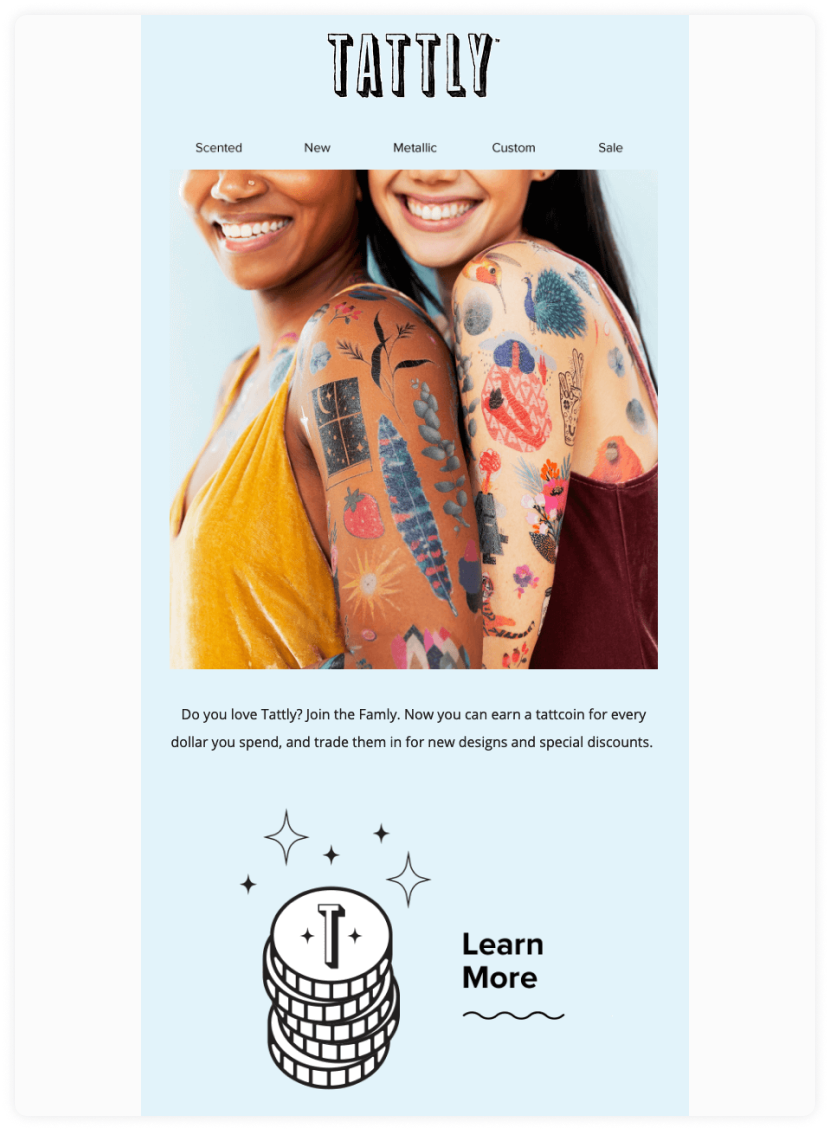
For example, like Tattly, you can implement a point-based system that awards reward points for every transaction that can be used for discounts or other prizes on the site. There are various ways to use email to automate your loyalty program, including:
Points balance updates
Bonus point campaign announcements
Post-purchase referral reminders
Wrap up
Implementing a marketing automation strategy is a thrilling experience. Unfortunately, if you don't know how to utilize automation tools fully, the excitement won't survive long. The ideal way is to see each marketing automation software as an essential component of your overall marketing strategy. Read our guide to understand how you can have automated touchpoints on your customer journey map with these incredible softwares.
What you should do next
Hey there, thanks for reading till the end. Here are 3 ways we can help you grow your business:
Talk to an email expert. Need someone to take your email marketing to the next level? Mailmodo’s experts are here for you. Schedule a 30-minute email consultation. Don’t worry, it’s on the house. Book a meet here.
Send emails that bring higher conversions. Mailmodo is an ESP that helps you to create and send app-like interactive emails with forms, carts, calendars, games, and other widgets for higher conversions. Sign up now and send 10k free emails/month. Sign up here.
Get smarter with our email resources. Explore all our knowledge base here and learn about email marketing, marketing strategies, best practices, growth hacks, case studies, templates, and more. Access guides here.

